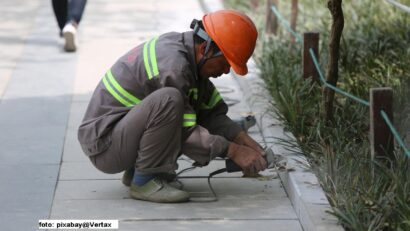Working in Romania
The latest from the Romanian labour market

Sorin Iordan, 30.10.2025, 11:29
Working in Romania (Sorin Titus Iordan)
Non-EU citizens who invest at least €400,000 in Romania could obtain a temporary residence permit for a period of five years, according to a legislative proposal submitted to the Romanian Parliament. According to the draft, eligible investments are Romanian government bonds, one or more properties in Romania held for a minimum of five years from the date of purchase, investment funds registered and authorized in Romania, and shares in Romanian-owned companies listed on the Bucharest Stock Exchange. The program, called “Golden Visa Romania,” is open to third-country nationals who are at least 18 years old, have a valid identity document, have no reports for refusal of entry into Romanian territory or in the Schengen Information System, have not been convicted of a criminal offense for which they have not been rehabilitated, are not under criminal investigation, and do not pose a threat to national security. Family members of the beneficiary may be included in the residence permit thus obtained. The initiators justify their legislative proposal by the fact that other European countries have implemented similar investment-based residence programs, aimed at attracting foreign capital and creating jobs.
The General Inspectorate for Immigration has concluded the national information campaign “Legal work protects your rights!”, which ran this month and aimed at raising awareness among employers and foreign citizens about compliance with legal provisions regarding the employment of citizens from outside the European Union. During the campaign, immigration police officers organized 45 information sessions nationwide, attended by 490 representatives of commercial companies, as well as foreign citizens who wanted to learn directly about their rights and obligations in Romania. During the sessions, immigration police officers provided clarifications on the legal framework governing the employment of foreign nationals, the responsibilities of employers and workers, the fight against undeclared work, and the importance of complying with the terms and conditions of stay.
The SME Romania organization supports the proposal of the Labor Importers’ Association to increase the quota of foreign workers for next year from 100,000 to 150,000. “This position reflects the current realities of the Romanian labor market and responds to the acute need for labor felt in many economic sectors, such as construction, HoReCa, transport, agriculture, and services,” said SME Romania. The organization believes that the actual demand for non-EU labor has significantly exceeded the 100,000 limit set by the government and points to data from the General Inspectorate for Immigration, according to which more than 230,000 applications for work permits had been submitted by the beginning of October. According to the employers’ association, a higher number of work permits is not only a necessary measure to cover the labor shortage, but also a strategic decision to maintain investment, economic competitiveness, and the sustainability of the tax and pension system. SME Romania also said it supports the simplification and digitization of procedures for issuing work permits and visas, so that processing times are reduced and the loss of labor to other countries is avoided.
Almost 1,300 foreign nationals received permission to work in Vâlcea County this year, according to immigration police. They reported that, by the end of September, approximately 1,500 such requests had been received from local employers. Approximately 1,290 were approved for permanent and seconded workers, most of them for temporary stays. At the same time, this year, over 1,200 foreigners, most of them from outside the EU, from countries such as Nepal and Sri Lanka, applied for the right to stay in Vâlcea. In addition, there were 82 citizens of the European Union, the European Economic Area, or the Swiss Confederation, most of them from Italy, the Netherlands, and France. The main reasons why foreigners applied for residence in Vâlcea were employment, family reunification, volunteering, and residence based on means of support.






























